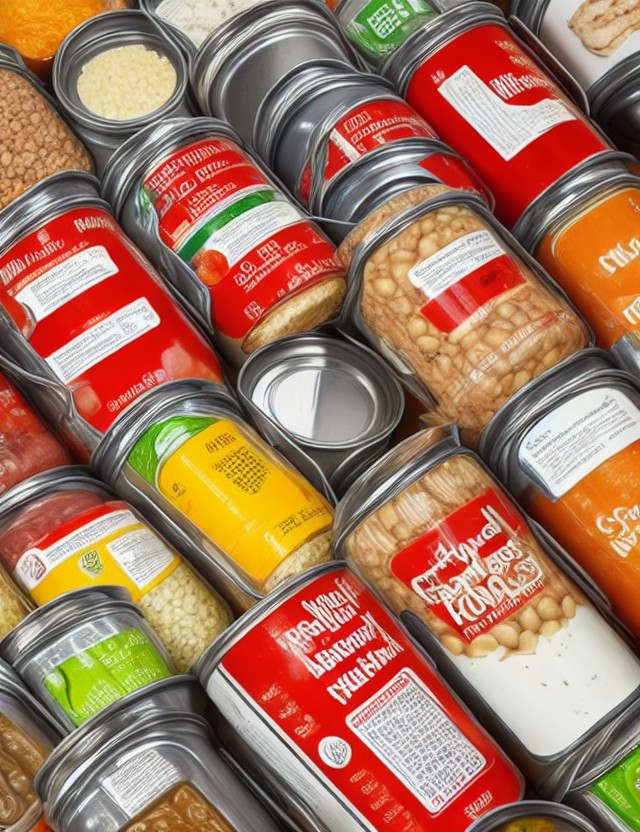Best Emergency Foods and Food Storage

In case of an emergency or disaster, having a well-stocked pantry with long-lasting food items can make a huge difference in your ability to stay nourished and healthy. Whether it's a natural disaster, power outage, or other unforeseen events, it's essential to have a variety of non-perishable foods that will last for an extended period. In this article, we'll discuss the best foods to store long-term and some efficient ways to store them.
Canned Foods:
Canned foods are a great option for long-term storage. They are already cooked and processed, making them a convenient and easy-to-prepare option. Canned fruits, vegetables, and meats are excellent sources of essential nutrients, such as vitamins, fiber, and protein. They also have a long shelf life, typically lasting for up to five years or more. When storing canned foods, it's best to keep them in a cool, dry place away from direct sunlight.
Dried Foods:
Dried foods, such as beans, lentils, rice, pasta, and grains, are another excellent option for long-term storage. These foods are rich in carbohydrates, protein, and fiber, making them an essential part of a balanced diet. They also have a long shelf life, typically lasting up to a year or more. When storing dried foods, it's important to keep them in airtight containers to prevent moisture and pests.
Nuts and Seeds:
Nuts and seeds are high in healthy fats, protein, and fiber, making them a great option for long-term storage. They are also versatile and can be used in a variety of recipes, such as salads, granola, and trail mix. When storing nuts and seeds, it's best to keep them in a cool, dry place away from direct sunlight. You can also extend their shelf life by storing them in the freezer.
Powdered Milk and Eggs:
Powdered milk and eggs are another excellent option for long-term storage. They are a great source of protein, calcium, and other essential nutrients. Powdered milk and eggs can be used in a variety of recipes, such as baked goods, scrambled eggs, and pancakes. When storing powdered milk and eggs, it's important to keep them in airtight containers to prevent moisture and pests.
Freeze-Dried Foods:
Freeze-dried foods are a popular option for long-term storage. They are lightweight, easy to store, and have a long shelf life of up to 25 years or more. Freeze-dried foods are also convenient and easy to prepare, making them an excellent option for emergencies. They come in a variety of options, including fruits, vegetables, meats, and desserts.
When storing food for emergencies, it's essential to consider the storage conditions. The best storage conditions are a cool, dry, and dark place with consistent temperatures. Avoid storing food in areas that are prone to temperature fluctuations, such as attics or garages. It's also essential to rotate your food storage regularly, using the first-in, first-out (FIFO) method, to ensure that your food is always fresh.
In conclusion, having a well-stocked pantry with long-lasting food items is crucial in case of an emergency or disaster. Canned foods, dried foods, nuts and seeds, powdered milk and eggs, and freeze-dried foods are all excellent options for long-term storage. By following proper storage methods, you can ensure that your food stays fresh and nutritious for when you need it most.
